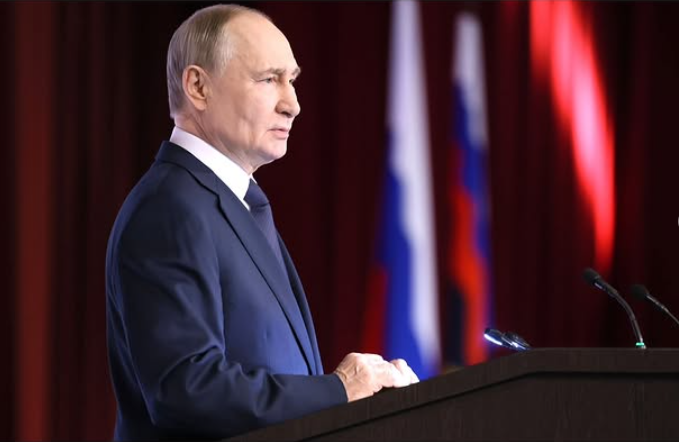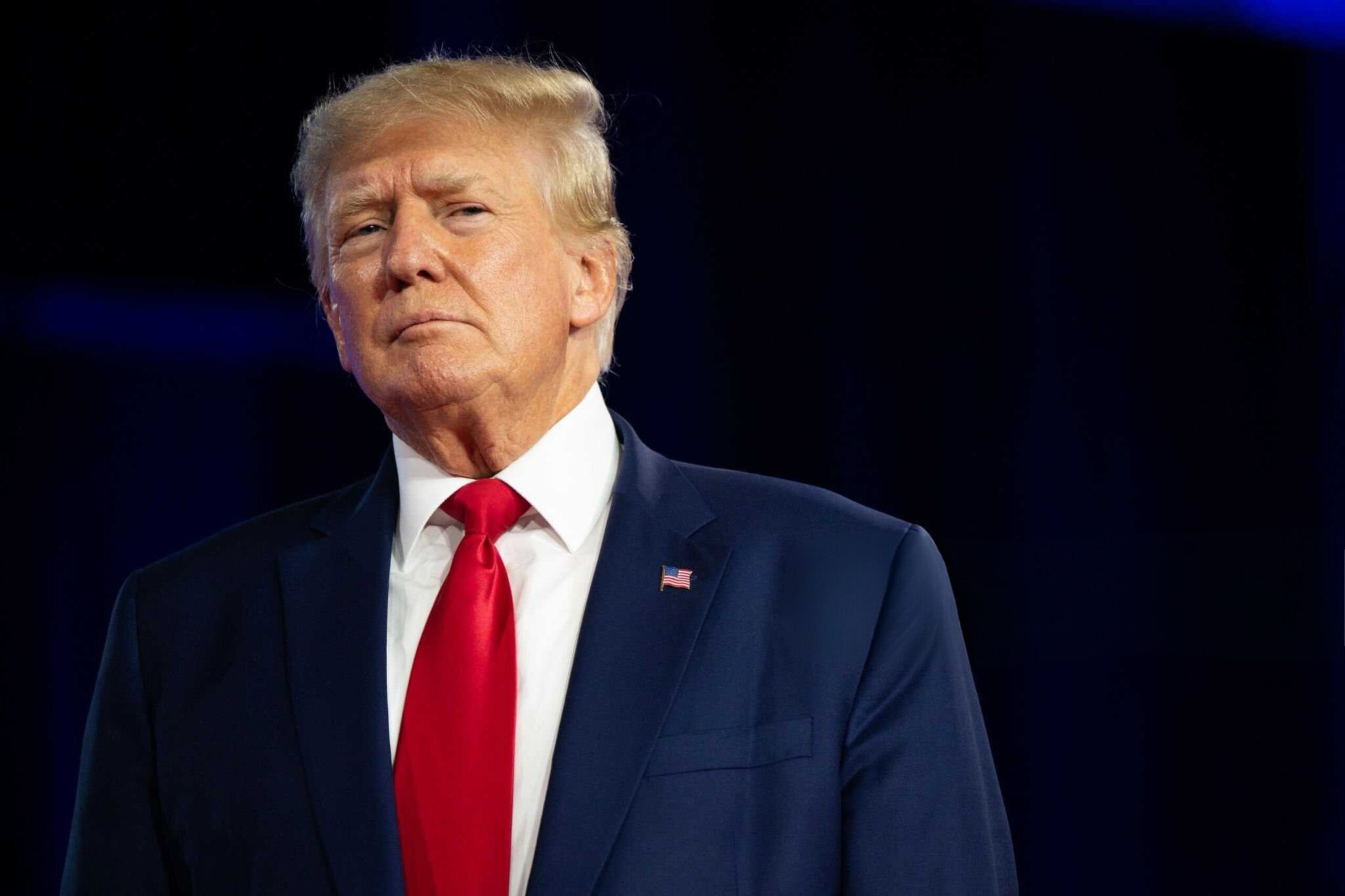[ad_1]
WASHINGTON (Reuters) – President Donald Trump chafed on Thursday over the new dive in U.S. relations with Russia, widening a rift with his own Republican Party as he blamed Congress for causing the tensions with a new package of sanctions.
Underlining the tensions between the two countries, Russia forcefully condemned accusations by Trump’s vice president, Mike Pence, that Russia is working to “destabilize” the Western Balkans. This showed Washington “sliding ever deeper into the primitive ideology of the Cold War era,” the Russian Foreign Ministry said on Thursday.
Trump, far removed from his election campaign promises to improve relations with Vladimir Putin and his praise of the Russian president, already was the target of Kremlin scorn over the sanctions that he reluctantly signed on Wednesday.
Russian Prime Minister Dmitry Medvedev said the measure showed the Trump administration was utterly powerless, adding in a Facebook post on Wednesday evening that the hope of improved relations with the new administration in Washington was over.
Even during his campaign, Trump’s stated desire for improved ties with Moscow was met with concern by fellow Republicans, as well as Democrats. Prospects for a rapprochement largely evaporated once he took office in January over U.S. intelligence agencies’ findings that Russia meddled in the 2016 U.S. election campaign.
Congress passed the new sanctions, hitting a range of Russian industries including the energy sector, to punish Russia for that and for the annexation of Ukraine’s Crimea in 2014. The legislation included provisions allowing lawmakers to stop Trump from easing the penalties.
Trump, who has publicly expressed frustration with Congress, lashed out again at lawmakers on Thursday.
“Our relationship with Russia is at an all-time & very dangerous low,” he said in a Twitter post. “You can thank Congress, the same people that can’t even give us HCare!” he added, referring to a bitter setback this month when Republicans failed to push healthcare legislation through the Senate.
Republicans, who control both chambers of Congress, and Democrats are strongly divided on many issues but the sanctions measure drew wide support from lawmakers in both parties.
‘Thank Putin’
Senator John McCain, chairman of the Senate Armed Services Committee and a leading voice on foreign policy in the party, was among Republican lawmakers pushing back hard at Trump’s tweet.
“Our relationship w/ Russia is at dangerous low. You can thank Putin for attacking our democracy, invading neighbors & threatening our allies,” McCain said on Twitter.
Trump had little choice but to sign the legislation because Congress clearly had the votes to override his potential veto. He strongly criticized the bill and complained it infringed on his presidential powers to shape foreign policy.
Despite Trump’s public misgivings about the sanctions, Pence presented a tough stance against Russia during a tour of eastern Europe this week.
Nonetheless, reflecting mixed signals from Washington that emerged before the president signed the sanctions bill, Secretary of State Rex Tillerson is still seeking a cooperative relationship with Moscow. Tillerson had regular contact with senior Russian officials as CEO of Exxon Mobil before joining the Trump administration.
A senior State Department official, speaking on condition of anonymity, said Tillerson remained focused on finding a way forward in the relationship, with a firm belief that cooperation between the two can improve global stability.
One of Tillerson’s top agenda items when he meets with Russian Foreign Minister Sergei Lavrov on Sunday in Manila is to persuade Russia to play a larger role in persuading North Korea to curb its nuclear program, the official said.
‘Tension and Animosity’
Russia has loomed large over the first six months of the Trump presidency. U.S. congressional panels and a special counsel are investigating the election interference in probes that also are looking into any potential role by Trump aides.
Moscow denies any meddling and Trump denies any collusion by his campaign while regularly denouncing the investigations as political witch hunts.
Republican U.S. Senator Tom Cotton, asked about Trump’s tweet in an MSNBC interview, agreed U.S.-Russian ties were “at a very low point” but rejected the president’s blame.
“Ultimately, the responsibility falls primarily on Vladimir Putin,” Cotton said, pointing to Russian actions over Ukraine, arms control treaty violations and alleged meddling in various Western nations.
Andrew Weiss, a former National Security Council Russia expert now at the Carnegie Endowment for International Peace think tank, said there was a limit to what the Trump administration could do to improve relations with Russia.
“The level of tension and animosity on both sides in the core parts of our national security bureaucracy is almost unlimited,” he said.
“Even if Trump and Tillerson try to coax progress out of senior Russian interlocutors, it’s not going to be easy to translate that into progress on the ground” with the exception of Syria, because Russia is such an important player there, Weiss said, referring to Moscow’s role as an ally of the Syrian government.
Putin responded to the new sanctions even before Trump signed the bill, ordering the United States on Sunday to cut about 60 percent of its diplomatic staff in Russia by Sept. 1 and taking away a summer house used by U.S. Embassy staff.
Reporting by Eric Walsh and Susan Heavey in Washington; Jack Stubbs in Moscow; Writing by Frances Kerry; Editing by Bill Trott
[ad_2]
Source link






Leave a Reply